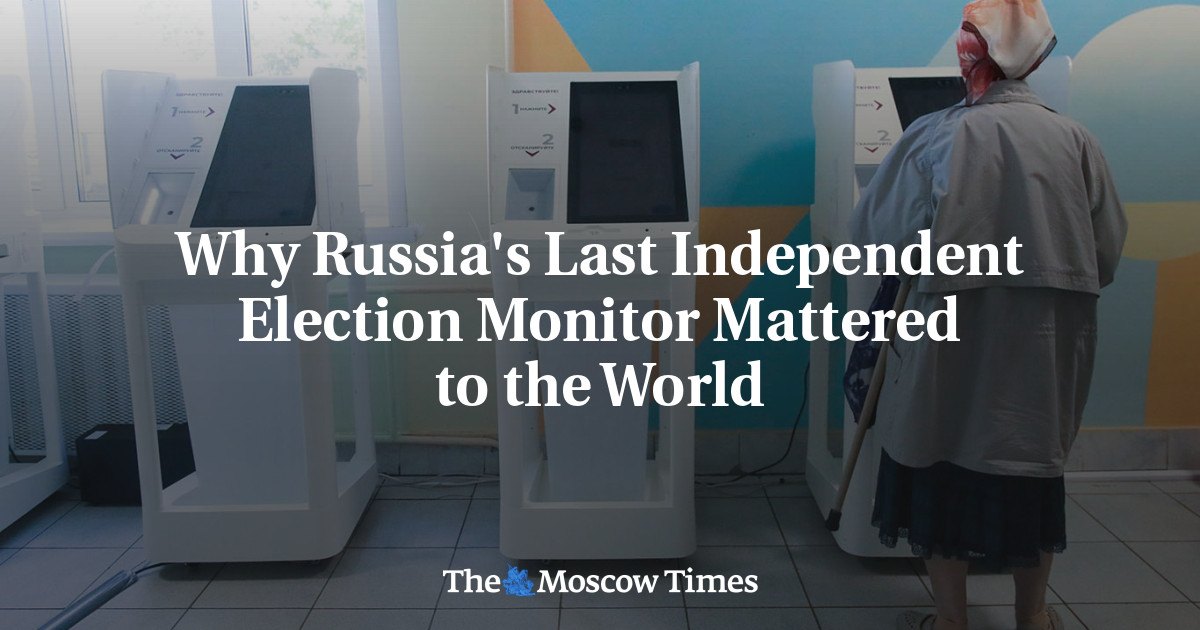
Why Russia’s Last Independent Election Monitor Mattered to the World
How did your country report this? Share your view in the comments.
Diverging Reports Breakdown
Why Russia’s Last Independent Election Monitor Mattered to the World
Golos, Russia’s only independent election monitoring organization, is sadly no more. Golos’ demise will have far-reaching, pernicious effects on our ability to understand the dramatic unwinding of the Russian electoral system. Even amid a hardening of the regime, Golos stood out in its brave and unwavering activities. Volunteers learned how to identify election violations and work with lawyers to hold officials accountable. All that is now that is gone is an invaluable resource for those tracking the evolution of the electoral system, writes Alexander Nekrassov, an expert on Russian politics and democracy. He adds that without Golos, our knowledge of how voters are being oppressed will be severely curtailed, and we will have lost the unparalleled leader in recording, parsing, and analyzing electoral developments. The organization trained hundreds of thousands of election monitors across the country, he says, and it had name recognition among supporters of the Putin government, suggesting voters were following its activities from across the political spectrum. It also served as a hub for data about elections which is otherwise becoming harder to access.
Elections in Russia will continue without Golos. But our knowledge of how voters are being oppressed will be severely curtailed. It was not only analysts who relied on Golos for objective information. In 2011, one public opinion poll showed that 39% of Russians had heard of Karta Narusheniy. Our own survey work uncovered that over one-fifth of respondents had heard specifically about Golos, an incredible feat for a small civil society organization. Importantly, Golos had fairly high name recognition among supporters of the Putin government, suggesting voters were following its activities from across the political spectrum. Beyond crowdsourcing, Golos served as a hub for data about elections which is otherwise becoming harder to access. In the late 2000s, Russia’s Central Election Commission (CEC) was admirably committed to the open data ethos, posting comprehensive information about elections on its main website. But as the years went on, its accessibility faltered. From the beginning, the site itself displayed all the relevant information, but offered no search functionality and only weak filtering tools to zero in on specific candidates or access data in bulk. More critically, the CEC website added security features such as Captcha and scrambled text in mid-2017 to deter scraping by data scientists analyzing irregularities in turnout and vote counting. Complete election data became considerably harder to access. Here again, Golos filled the void. Its encyclopedia of candidates and full election calendar provided the transparency that the CEC was attempting to destroy. Using these web resources, academics and investigators could locate historical campaign data for any candidate, as well as construct tools to more easily access the underlying CEC data. Golos’ archive of national, regional and local electoral legislation, as well as trenchant analysis of the ongoing sinister changes to these laws, was an invaluable resource for those of us tracking the evolution of the electoral system. One could find weekly updates about electoral procedures, filled with both broad analysis and minutiae from analysts committed to improving Russia’s democracy. All of that is now gone. Perhaps most importantly, Golos trained hundreds of thousands of election monitors across the country. Volunteers learned how to identify election violations and work with lawyers to hold officials accountable. In many respects, Golos’s observers have been the first line of defense against the most egregious abuses of power. Indeed, without Golos’s investment in training local monitors, there simply would have been no consistent, nationwide independent observation of elections in Russia. The OSCE boycotted several elections because of the severe restrictions placed on international observers. The few foreigners who did come, as Golos handily exposed, were disproportionately drawn from right-wing parties in Europe more sympathetic to the Putin government.
